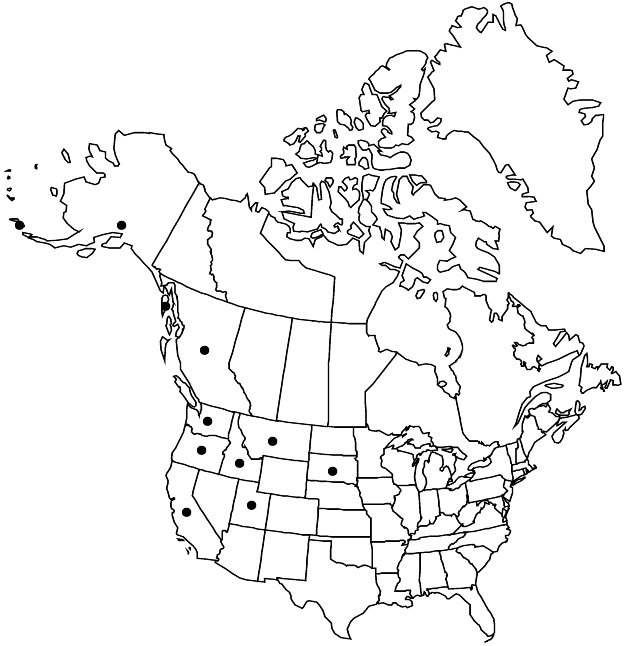Difference between revisions of "Stellaria borealis subsp. sitchana"
Fl. N.W. Coast, 147. 1915.
imported>Volume Importer |
imported>Volume Importer |
||
| Line 85: | Line 85: | ||
|publication year=1915 | |publication year=1915 | ||
|special status=Endemic | |special status=Endemic | ||
| − | |source xml=https:// | + | |source xml=https://bitbucket.org/aafc-mbb/fna-data-curation/src/2e0870ddd59836b60bcf96646a41e87ea5a5943a/coarse_grained_fna_xml/V5/V5_208.xml |
|subfamily=Caryophyllaceae subfam. Alsinoideae | |subfamily=Caryophyllaceae subfam. Alsinoideae | ||
|genus=Stellaria | |genus=Stellaria | ||
Latest revision as of 22:09, 5 November 2020
Plants coarse, straggling. Stems usually finely papillate. Leaf blades narrowly lanceolate, usually 3–6 cm, widest near base. Pedicels usually reflexed in fruit. Flowers ca. 10 mm diam.; sepals with 3 prominent, ridged veins extending to near apex, narrowly triangular, 3.5–5 mm, longer than 0.5 times capsule length. Capsules straw colored, translucent, usually (3.6–)5–7 mm, 2 times as long as broad. Seeds usually rugulose. 2n = 52.
Phenology: Flowering May–Sep.
Habitat: River and stream gravel and banks, ditches, damp forests, forest openings
Elevation: 0-2800 m
Distribution

B.C., Alaska, Calif., Idaho, Mont., Oreg., S.Dak., Utah, Wash.
Discussion
Subspecies sitchana is sturdier than subsp. borealis and is readily distinguished by its leaf blades, which are narrowly lanceolate and widest at the base, and by its narrowly triangular, 3-veined sepals. It is a western taxon associated mainly with the slopes of the Coast Ranges and the Rocky Mountains. On the eastern side of its range and in the Aleutian Islands it tends to intergrade with subsp. borealis. In central California, a rare form has broad, elliptic leaves (length-to-width ratio 2.5–3: 1) to 32 × 13 mm. It retains its characters in cultivation.
Selected References
None.